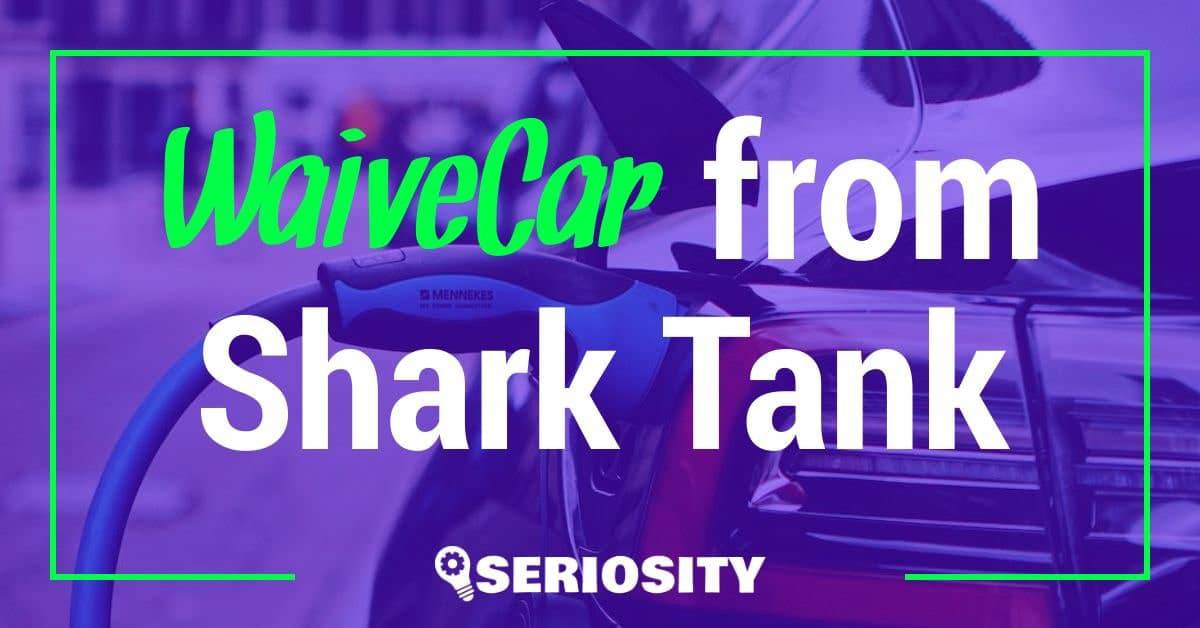While many car rental services allow you to rent cars that run on petrol and diesel, not many offer electric vehicles. WaiveCar wants to change this situation. In this day and age, petrol and diesel prices continue to rise. In response, Zoli Honig and Isaac Deutsch started an electric car rental company called WaiveCar. The duo started the car rental company that offers free rides to its customers for up to two hours. If you are looking for a cheap and eco-friendly way to get around, nothing beats WaiveCar. Are you wondering how a car rental business can afford to provide free services? Keep reading to find out!
WaiveCar is the world’s first-ever electric car-sharing service offering up to two hours of complimentary rides to its customers before charging a rental fee. What sets it apart in the car rental market is that it allows users to reduce their carbon footprint and offers them the lowest rates in the market.
WaiveCar does not generate profit from its clients; instead, it is financed by the revenue generated through advertisement broadcasts on digital billboards placed on top of their vehicles. These advertisements enable business owners to promote their products and services on Waive Car’s electric cars.
WaiveCar serves its customers well by allowing them to rent a vehicle for a short period, after which it can immediately be used by someone else; all the while, companies benefit from the advertisement of their products as the car moves around an area. Thus, WaiveCar creates a win-win situation for businesses and customers. Nothing beats WaiveCar in terms of cheap and affordable travel.
Although this business idea seems extremely promising, the company’s growth was slow and steady at the beginning, with 20 vehicles on board. The car-sharing market is highly saturated. However, the founders were optimistic about their business idea, believing there was a huge demand for car rentals at affordable prices.
Hoping to take their business to the next level, the duo appeared on Shark Tank to seek an investment of $500,000 in exchange for 2% ownership of WaiveCar. The Sharks were very impressed by the business idea, and soon Kevin offered them a $500,000 loan at an interest rate of 12% and a 2.5-year maturity period in exchange for 4% of the business. Kevin also wanted an 80% discount on digital advertisements on WaiveCar vehicles. The duo accepted the offer, and the deal was finalized.
After their appearance on Shark Tank, WaiveCar added Chevrolet and Hyundai electric cars to its car fleet in many different cities. Moreover, they also partnered with the California State University team to work on a vehicle-sharing program with zero carbon emissions. However, the Covid-19 pandemic significantly impacted the car rental business due to travel restrictions, negatively affecting Waive Car’s profits.
Later, they also suffered an insurance problem, due to which they had to cease operations. Since the founders never resolved the issue, WaiveCar did not return to the market, and their app is no longer available for download on Google Play Store or Apple’s App Store. They are another Shark Tank failure story.
They have now shifted to another business model, WaiveWork, which offers an affordable car rental service to drivers solely dependent upon car rentals for income. The founders of WaiveCar are also working on another project called REEF, transforming static parking areas into improved logistical hubs. Moreover, they have recently announced on social media that they are working on “something magical.”
It has also failed…
Our Review of WaiveCar
WaiveCar, founded by Zoli Hoping and Issac Deutsch, is the world’s first free electric car sharing service which provides an affordable and economical choice for both rideshare and personal use rentals.
The first two hours of the ride have no charges, followed by a fixed rate for the third hour and beyond. Similar to a taxi cab, the cars have screens mounted on top, which display digital advertisements that practically serve as mobile billboards. This unique and innovative marketing scheme has allowed many businesses to advertise their products and services.
WaiveCar earns a significant portion of its earnings from these advertisements, allowing them to offer complimentary free drives to customers, further increasing its popularity. The business also claims to have the lowest rates among all competitive car rental services while not profiting from its customers.
With recent awareness of reducing greenhouse emissions, WaiveCar is a step ahead with its zero-emission vehicles. Although WaiveCar started with only twenty cars, they have continued to expand tremendously, recently sighing a contract with Hyundai, which agreed to allow them to use its range of automobiles. Despite cut-throat competition in the automobile renting market, WaiveCar’s owners are confident about their business flourishing.
Pros of WaiveCar
- WaiveCar offers an eco-friendly way to travel by offering electric cars.
- It allows customers to book free rides for up to 2 hours of the trip. An affordable rental fee is charged in the third hour and beyond.
- The company does not generate money from its customers but depends on advertising for revenue.
- They use the latest cars that are in excellent condition.
- They have made long-distance travel affordable and hassle-free.
- Their service is not only beneficial for the environment but also offers peace of mind to the customers while they are traveling.
Cons of WaiveCar
- Their business model has the potential to create a monopolistic market, with large businesses driving out smaller firms.
- The digital advertising on their cars may lead to price wars, with the customers having to pay the price.
Who Is WaiveCar for?
WaiveCar is perfect for anyone looking for an affordable and eco-friendly way to travel, as the first two hours of the ride are free. It is also beneficial for people looking to travel long distances or even move about for work or personal reasons.
Are There Any Alternatives?
WaiveCar has many alternatives offering similar car-sharing services, such as Uber and Lyft. However, they don’t provide electric cars or free car rental services.
Our Final Thoughts
WaiveCar is an excellent business idea that made travel a lot cheaper and more efficient, especially for people looking to travel long distances. Unfortunately, the business could not survive the insurance issues and the Covid-19 pandemic and thus had to close operations. So far, there are no signs of WaiveCar returning to the market.





